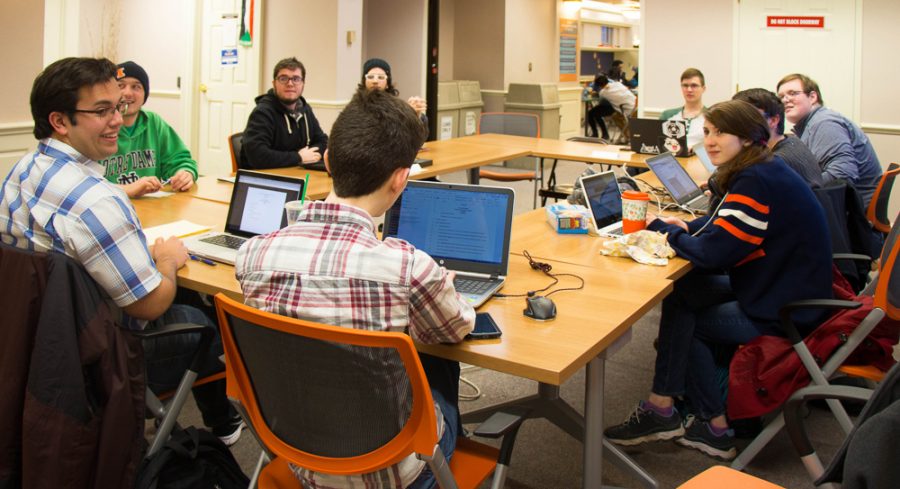ISG student judiciary makes strides in first year
The judicary meeting at the Student government complex on Wednesday, Jan. 31.
Feb 5, 2018
The Illinois Student Government introduced its judiciary branch about a year ago and recently began implementing changes.
Former Chief Justice Max Weiss, sophomore in LAS, said the judiciary branch serves as a check and balance on ISG. The judiciary was put in place to make sure the student government follows the guidelines and rules set in the constitution and the register.
He said the judiciary members read every post- and pre-packet for ISG meetings and read each resolution proposed by ISG to make sure they are not in violation of either governing document.
“(What we’ve) been doing this past couple of weeks is revising our section of the register,” Weiss said. “We are looking into our internal procedures, our scope and our policies.”
Judiciary Justice Jake Leahy, freshman in ACES, said the student body voted on the constitution as a more permanent document, while the register can be changed and amended as ISG sees fit.
Get The Daily Illini in your inbox!
“I would like to see the student government judiciary become a well-established (and) a well-respected branch that is known to be a just and fair branch to enforce the law of the constitution (and) register,” Leahy said.
He added there can be up to seven members in the judiciary at a time, including the chief justice.
“What I would like to see is for the judiciary to more fully explore its role within the student government,” said current Chief Justice Fernando Arias, sophomore in LAS, in an email. “I would like to refrain from discussing specific proposals but encourage members of the community to come out to meetings and engage with us.”
Arias said he would like to see the judiciary establish clearer procedures for hearing cases and make updates on how the judiciary is run.
“I joined the judiciary because I have a passion for law and believe that it can be a force for good in our society,” Arias said. “It was my hope that, by tapping into this passion, I could serve my fellow students by keeping our elected government efficient and accountable.”
The judiciary’s first case involved the protests at last year’s Homecoming Parade.
“(A student) brought the case forward to the judiciary claiming that several laws had been broken — student code violations, internal bylaws and constitutional things,” Weiss said. “Ultimately, we held two hearings on the case, listening to both the government side and the side of the plaintiffs.”
Weiss said the judiciary didn’t find any part of the protests unconstitutional nor any part of them that broke the register.
The judiciary, however, does not decide the legality of a situation, as its only duty is to determine if the ISG constitution or register were broken.
“The goal of the judiciary is to protect students by making sure the government stays within its powers and giving community members a voice in keeping their government accountable,” Arias said.






